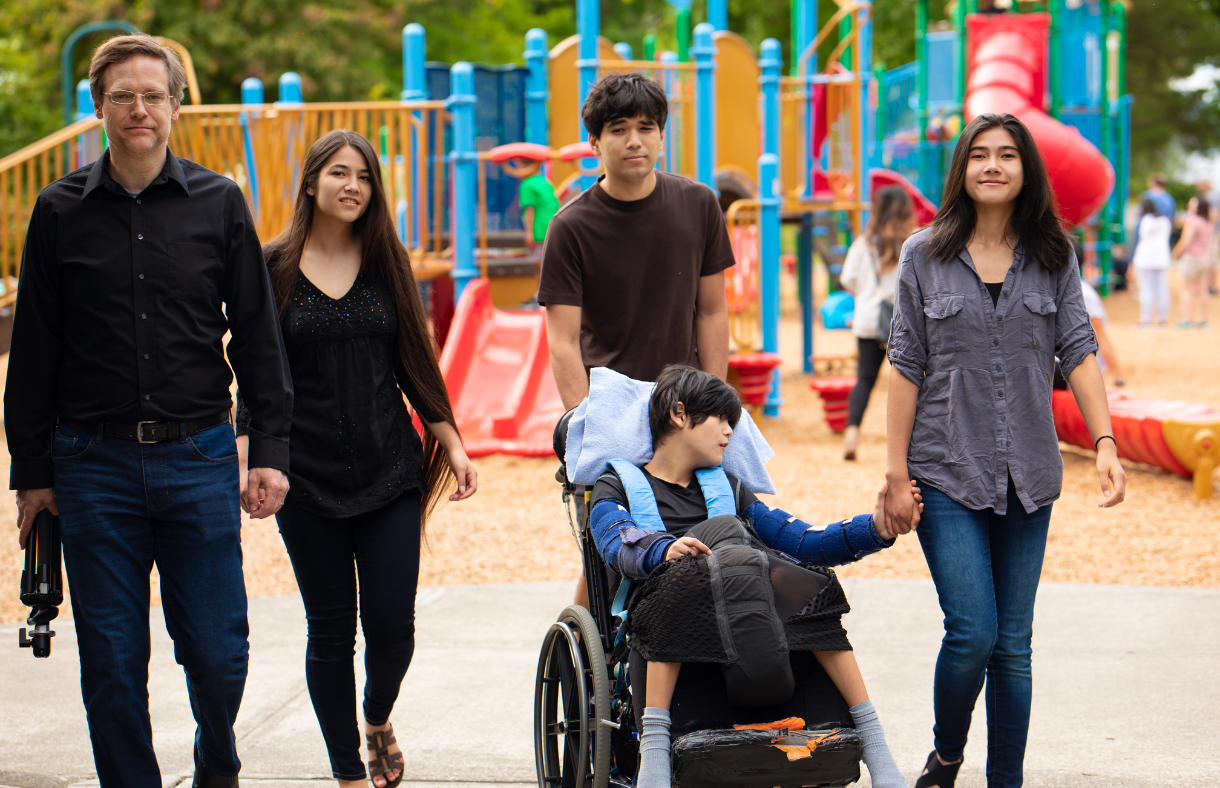
“Siblings of individuals with disabilities face unique challenges, and the sibling experience tends to change over time as siblings age.”
-Eunice Kennedy Shriver Center, UMass Chan Medical School
Of all people whose lives are affected by special needs and disability, the most under-served group may be siblings without special needs. These are the people—many under school age—who:
- Live in an environment full of confusion and anxiety, often without receiving a clear explanation of the cause
- Feel relegated to the “you can take care of yourself” sidelines while the special-needs child receives ongoing attention
- Often miss out on things they want, due to extra time and money spent dealing with a sibling’s problem
- May face other extensive and/or unreasonable parental expectations, all the way into adulthood (it does happen that a fifty-something sibling is appointed permanent guardian in a parent’s will, and is unaware of that provision until the will is read)
- Deal with a maze of strong personal emotions that parents are “too busy” or too stressed to pay attention to
- Have to deal with peers’ comments about a “weird” sibling
- May blame themselves for a younger sibling’s disability, especially if they resented the idea of a new baby
- May be over-supervised by parents who worry about an older sibling’s disability repeating itself
- As adults, are at higher risk for depression, anxiety, and toxic relationships
Challenging as it is to raise a child with special needs, you still owe your other children their full share of attention and support.
We’re All in This Together
The first step is to appreciate that “holding things together” isn’t exclusively your job. A strong human support network, including counseling for the whole family, will help everyone along the journey and will free up adult attention for other siblings. (Even two-parent families need additional backup from relatives, neighbors, and trusted friends.)
Siblings will be more cooperative if you treat this as a family team effort—without demanding that anyone play a position they aren’t ready for. Healthy, bright six-year-olds are still six years old, and can’t reasonably be expected to display adult-level attention spans, comprehension abilities, or self-discipline. They can, however, help pick up around the house or demonstrate a toy to a special-needs sibling. Being natural outside-the-box thinkers, “little kids” also display amazing capacity for suggesting new and better ways to meet challenges—yet another reason to listen to them even as you struggle to cope with special needs.
Remember, though, that all your children have needs only you can meet.
Who Needs What?
Siblings below school age need:
- Time each day (not necessarily lengthy, but regular) to receive your personal undivided attention.
- Empathy for the fact that their own empathic skills are still developing. At this age, it’s natural not to fully grasp that the world isn’t all about them. Scolding them for being “selfish” will only increase resistance, making the process longer and harder.
- Opportunities to feel useful. Don’t brush off age-appropriate requests to help out. Yes, they’ll likely make a mess the first few times, which can be doubly trying when your resources are already stretched. But once the learning period is over and sharing the load is an all-around habit, the long-term easing of your burden will be more than worth it.
Early-elementary siblings need:
- Recognition and encouragement for their achievements. It can be so easy to get caught up in celebrating your special-needs child’s milestones, and to forget that “typical” childhood accomplishments are also worth being proud of.
- Your listening ear (no matter how fatiguing your day has been) for their learning experiences, joys, and struggles.
- Opportunities to play actively and learn by doing (so try not to park them in front of a screen just to get them out from underfoot).
Older-elementary and tween siblings need:
- Assurance that they are accepted as they naturally are, and that it’s all right to be “imperfect.”
- Parental understanding and support as they begin the long transition period between childhood and maturity.
- Ongoing positive reinforcement of the truth that family life is a team effort—without guilt trips if they suddenly seem ashamed of having a special-needs sibling. Kids this age are starting to develop a sense of themselves as destined to play roles in the larger world, and it’s standard growing pains to worry about what that world will think of them if they or their families stand out.
- Support for the fact that they are growing out of childhood—which can be particularly hard to face if the family includes another child who may never be capable of full independence. You may experience a recurrence of grief from a years-ago diagnosis, or find yourself worrying about a future when the “typical” child has moved far away and you’re too old to care for the special-needs child. Don’t unload such emotions on your “typical” child, who has enough to deal with in the present. Talk to a trusted friend or therapist.

All siblings need:
- Openness, honesty, and age-appropriate explanations of the situation.
- Coaching on how to explain the situation to others.
- Validation of their own feelings, even feelings that seem unreasonable to you.
- One-on-one attention from every adult in their household and support network.
- Permission to engage in activities and interests that get their minds off a sibling’s special needs.
- Opportunities to contribute to family functionality and decisions.
- Respect as the uniquely abled individuals they are.
- Parents who stay energetic, empathetic, and emotionally available by taking time to take care of themselves as well as the kids.
- An ongoing sense of “we’ll all get through this together.”
See also:
- Family listings in BridgingApps database
- Sibling Leadership Network for adult siblings
- The Special Needs Planning Guide: How to Prepare for Every Stage of Your Child’s Life by Cynthia R. Haddad and John W. Nadworny

